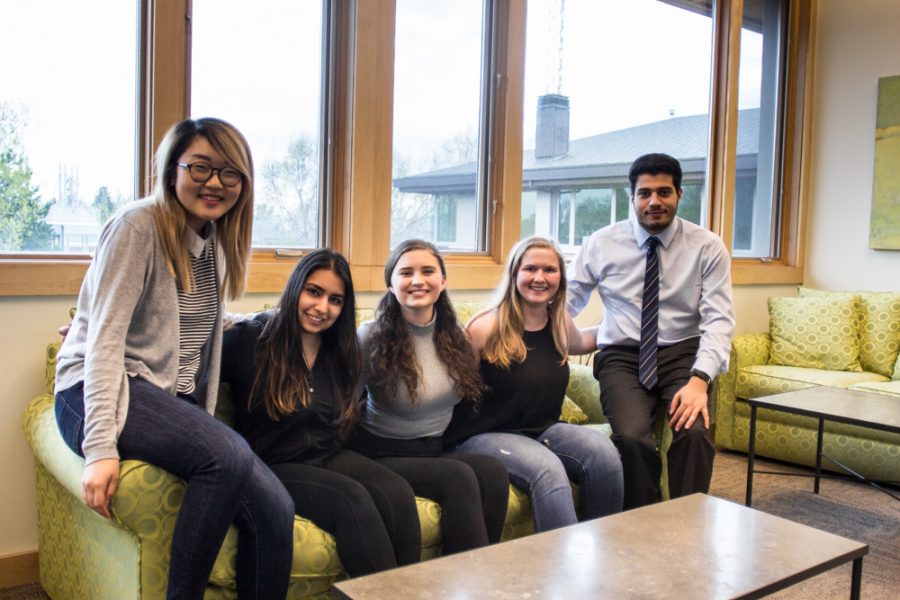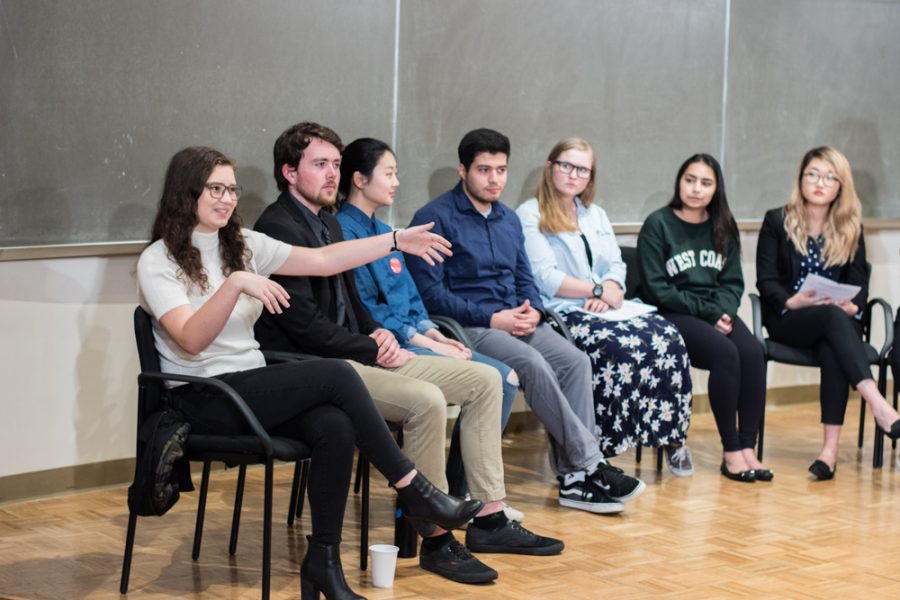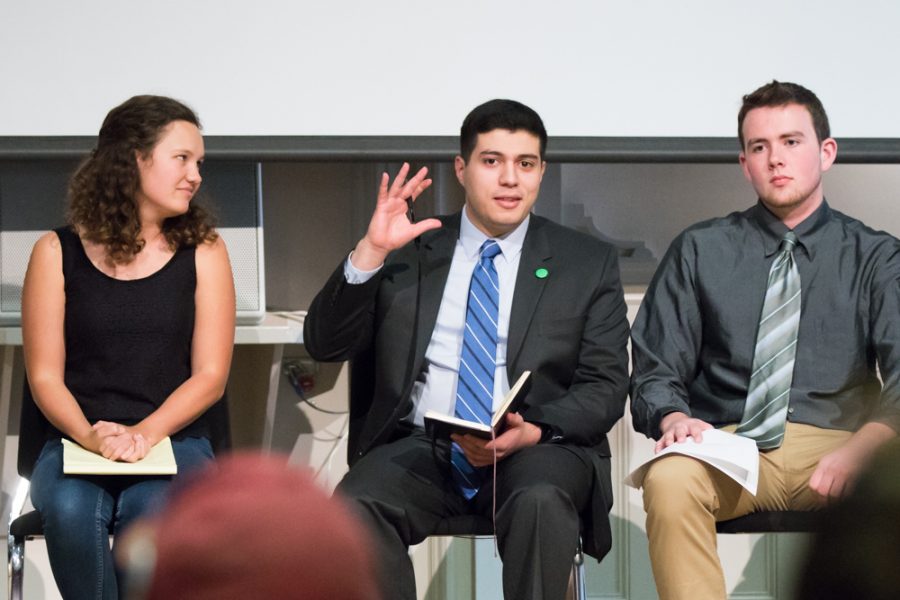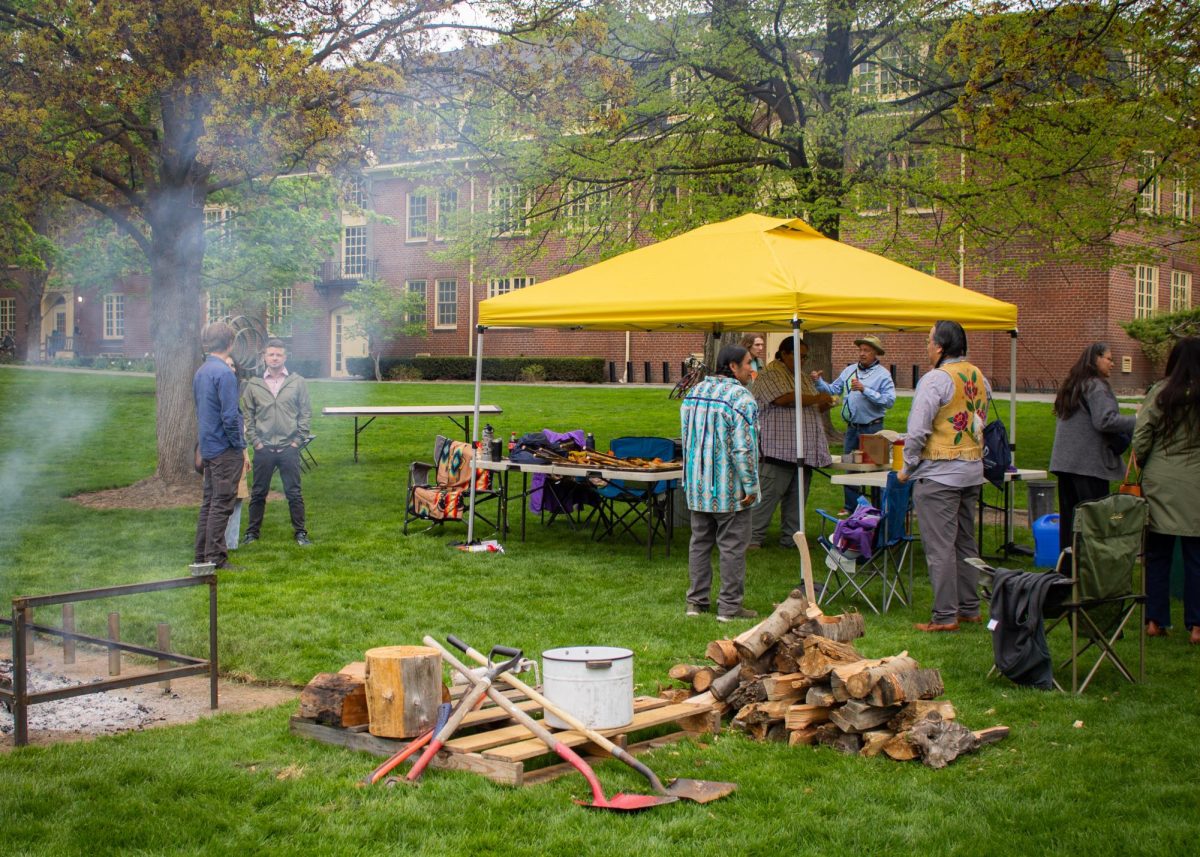As the 2015-2016 school year approaches, ASWC’s elected Executive Council plans new ways to address student concerns and seeks to increase student involvement in college decision-making processes. With President George Bridges stepping down, ASWC hopes to work with incoming President Kathleen Murray to revisit several policies in the new school year.
ASWC president-elect junior Jack Percival looks forward to setting up monthly meetings with Murray in order to discuss issues concerning the student body. He anticipates that with the end of the Now Is the Time Campaign, Whitman’s comprehensive fundraising effort, Murray will have the opportunity to focus more heavily on a new strategic plan for the college. The plan will involve changes to Whitman’s admission policies and finances as well as efforts to increase diversity.
“Next year is an incredible opportunity for ASWC to establish that very direct relationship with the highest levels of the administration and make sure that a precedent of student involvement in big decisions is set,” said Percival.

Other members of the Executive Council include the vice president-elect, sophomore Arthur Shemitz, the finance chair, junior Anya Tudisco and the nominations chair, first-year Annamarie McCorvie. The goals of the newly elected council members include advancing the long-term effort to increase student input in the tenure process, working toward a test-optional admissions policy and establishing ways to improve communication between ASWC, the student body and the administration.
ASWC has pursued the issue of student input in the tenure process since a well-liked Spanish professor was denied tenure in the spring of 2012. In response, a resolution was passed in an attempt to both increase student input and put a student on the Personnel Committee, but it lacked faculty support. Current president senior Tatiana Kaehler said that increased student input in tenure was one of the goals she ran on before being elected. The issue of tenure has carried over to Percival’s platform for the upcoming year. Another resolution regarding tenure was passed this year, but it didn’t obtain a faculty sponsor and therefore could not be discussed at a faculty meeting.
“The motion would be to amend the faculty code,” said Percival. “And only a faculty member can make a motion to amend the faculty code.”
Kaehler believes that issues that take longer to achieve are often more important.
“One of the weaknesses of ASWC is that we have so much leadership turnover and that students are only on campus for four years,” said Kaehler. “I think one of the most important things that ASWC leaders can do is get younger generations of students involved in initiatives that will take time to enact.”
In addition to the issue of tenure, other long-term issues include a move towards a more equitable admissions policy by becoming test optional.
Both Percival and Shemitz advocated for test-optional admissions on their platforms. Whether or not Whitman goes test optional in the future will ultimately be an institutional decision made by future President Murray and Dean of Admission and Financial Aid Tony Cabasco.
According to Kaehler, a resolution written by Shemitz last fall has proved effective in pressuring the administration to move toward a decision. Shemitz hopes that continued action by ASWC will maintain such pressure.
“The power that ASWC has in this context is to launch a conversation and to disseminate this information broadly within the administration and say this is something that’s really important to us as students,” said Shemitz. “Make that be a conversation that begins within the administration and make it be a conversation that the administration has some kind of a response to.”
Besides issues that are already being considered, much of ASWC’s priorities for next year will be determined by major student concerns that arise. Such concerns are often difficult to predict.
Kaehler cited student protests at the beginning of the year regarding the New York Times’ rankings on economic diversity as an example of how quickly students can mobilize around an issue. She also mentioned students’ responses to administrative decisions.
“The student body is very reactive to decisions that are made by the college and those reactions help ASWC determine what it needs to be pressing,” said Kaehler.
In order to give students a greater say in what issues they feel are important, Shemitz, who will also be the chair of the Student Affairs Committee, hopes to create an online petition system in which students can post issues they would like to be addressed by ASWC. Based on a model used at Middlebury College, the system will allow students to vote on issues posted by others that they also believe to be important. If an issue obtains 30 votes, the Student Affairs Committee will have to discuss it, and 100 votes will require an official response from the Executive Council.
“[The petition system will] be helpful for us to understand what the pulse of the student body is, even if an issue doesn’t dominate everyone’s conversation,” said Shemitz. “Then we can see what’s quietly lurking in people’s consciousness and things that they really want ASWC to address even if those don’t become the most hot-button issues throughout the year.”

While goals that require institutional change will take longer to achieve, the Executive Council is hopeful that those that pertain to the inner workings of ASWC will be realized in the upcoming year. In addition to Shemitz’ plans for the petition system, both McCorvie and Tudisco hope to increase communication from within ASWC on various fronts.
McCorvie’s main goal as nominations chair is to create avenues for increased communication and collaboration between college committees, governing boards and clubs. As the Nominations Committee is responsible for hiring students to act on governing boards and college committees, McCorvie hopes to make the most of such positions by creating spaces for groups with related goals to interact. Her ideas include making Town Hall into a networking event for group leaders and creating a website on which groups could share ideas.
“The groups that we have on campus [are] already doing amazing work, and they could be working together on it,” she said. “Institutionalizing a network like that could be really powerful.”
As finance chair, Tudisco is in charge of allocating ASWC funds to student organizations. One of her main goals for the upcoming year is to reinstate the feedback form that has the dual function of giving students the chance to reflect on an experience they had using ASWC funds, such as attending an off-campus conference, while also giving the Finance Committee a chance to have a greater awareness of how ASWC funds are being spent.
According to Tudisco, the feedback form would foster a “well-rounded understanding of where our funding is going and if it’s actually doing the things that it is intended to do.”
Additionally, Tudisco hopes to publish a bi-semester report using these responses so that the student body will be aware of exactly how ASWC funds are being spent in various organizations. Tudisco anticipates that this report will be another avenue for feedback, as students may respond with concerns regarding where they think ASWC funds would be used most effectively for the student body at large.
The Executive Council as a whole is optimistic about working together to lead ASWC next year. Kaehler also expressed her enthusiasm for the new leadership.
“I’m really excited to see what all of these people accomplish,” said Kaehler. “See where initiatives end up going … and see what momentum we can get.”


















